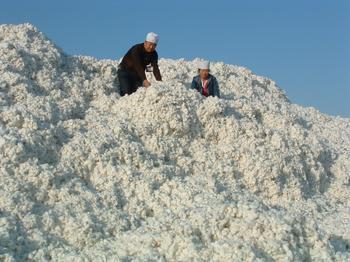 A few days ago, the United States Agriculture Minister, Tom Vilsack, said that the United States will stop paying the annual settlement of 147 million U.S. dollars for Brazil, which is part of the payment for the long-term trade dispute on cotton subsidies.
A few days ago, the United States Agriculture Minister, Tom Vilsack, said that the United States will stop paying the annual settlement of 147 million U.S. dollars for Brazil, which is part of the payment for the long-term trade dispute on cotton subsidies. In 2010, the United States agreed to pay the money to Brazil. At that time, Brazil was preparing to increase the tariffs on U.S. goods by hundreds of millions, including automobiles, medicine, and electronics. Stopping payments may prompt Brazil to take retaliation against the United States again.
Vilsack said in an interview in Brazil that since Congress has not passed the agricultural law or budget, he has no right to continue to pay for Brazil in the budget year starting from October 1. The current agricultural law will expire on September 30.
In 2009, the World Trade Organization stated that because the United States failed to cancel the illegal subsidies as mentioned by the WTO, Brazil can raise the tariffs on U.S. goods. An agricultural law awaiting the approval of the Congress tried to implement the cotton subsidies, but now the agricultural law has been shelved due to disputes between the House of Representatives and the Senate.
The Brazilian government submitted this issue to the WTO in 2002, claiming that the United States is still the world’s second largest cotton producer to pay subsidies. The 2010 agreement is temporary until Congress can resolve the issue.
"The only way to solve the problem is through agricultural law," Vilsack said. "We need (Congress) to do this work."
The Brazilian Ministry of Foreign Affairs and the Ministry of Agriculture declined to comment on Wednesday. Vilsack said he met Brazilian Minister of Agriculture and Foreign Minister. They said that they will pay close attention to the progress of U.S. agricultural law, but did not give a deadline for action to avoid retaliation.
"They are sharply reminding us that their patience is not unlimited and their choice is very small," said Vilsack.
Versak has been urging Congress to complete agricultural legislation, and agricultural law will establish agricultural plans and food stamp policies. The House and Senate versions of the bill will restructure cotton payments aimed at pleasing the WTO, including eliminating cash payments that are called direct payments and creating a new cotton program that is more like crop insurance.
Progress in the agricultural law has slowed because the conservatives in Congress have insisted on further reductions in the food stamp program, which has doubled in the past five years to reach $80 billion per year. However, both the Senate and the Obama administration led by the Party opposed the reduction plan.
Print Mesh Lace,Tulle Fabric Printed,Printed Lace Fabric,Wedding Rinted Tulle
FUZHOU TEXSTAR TEXTILE CO.,LTD. , https://www.fabrictulle.com